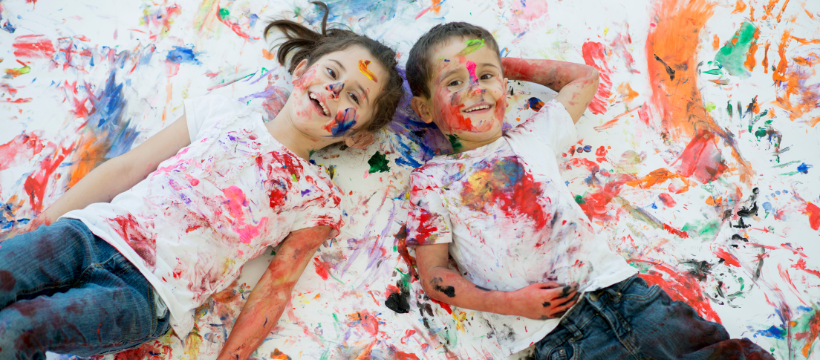
Messy play plays a significant role in the development of children, as it involves the use of various materials like water, sand, paint, and clay to create an environment that encourages exploration and learning through messiness and playfulness. While some parents and caregivers may initially hesitate (we don’t blame you!), it’s important to note that messy play offers numerous benefits for children’s cognitive, social, and emotional growth.
- One of the most significant benefits of messy play is that it promotes sensory exploration and development. When children engage in these activities, they encounter diverse textures, temperatures, and sensations, thereby enhancing their sensory processing skills. Sensory play has also demonstrated its effectiveness in aiding children in emotion regulation and stress reduction.
- Messy play also encourages creativity and imagination. By granting children the freedom to explore and experiment with various materials, they can unleash their imagination to create and invent new things. This form of play fosters problem-solving skills, as children are challenged to find ways to manipulate the materials to achieve their envisioned outcomes.
- Messy play also plays a role in enhancing children’s social skills. When children participate in these activities together, they acquire important abilities such as sharing, taking turns, negotiating, compromising, and communicating effectively.
- Most importantly, it’s a fun and enjoyable activity for children! It grants children the freedom to be expressive and imaginative and is a great bonding experience for children and their caregivers.
By providing children with the opportunity to explore and experiment with different materials you can foster their creativity and social development. So, the next time you’re hesitant to let your child engage in messy play, remember it’s a valuable learning experience – and totally worth the mess!




